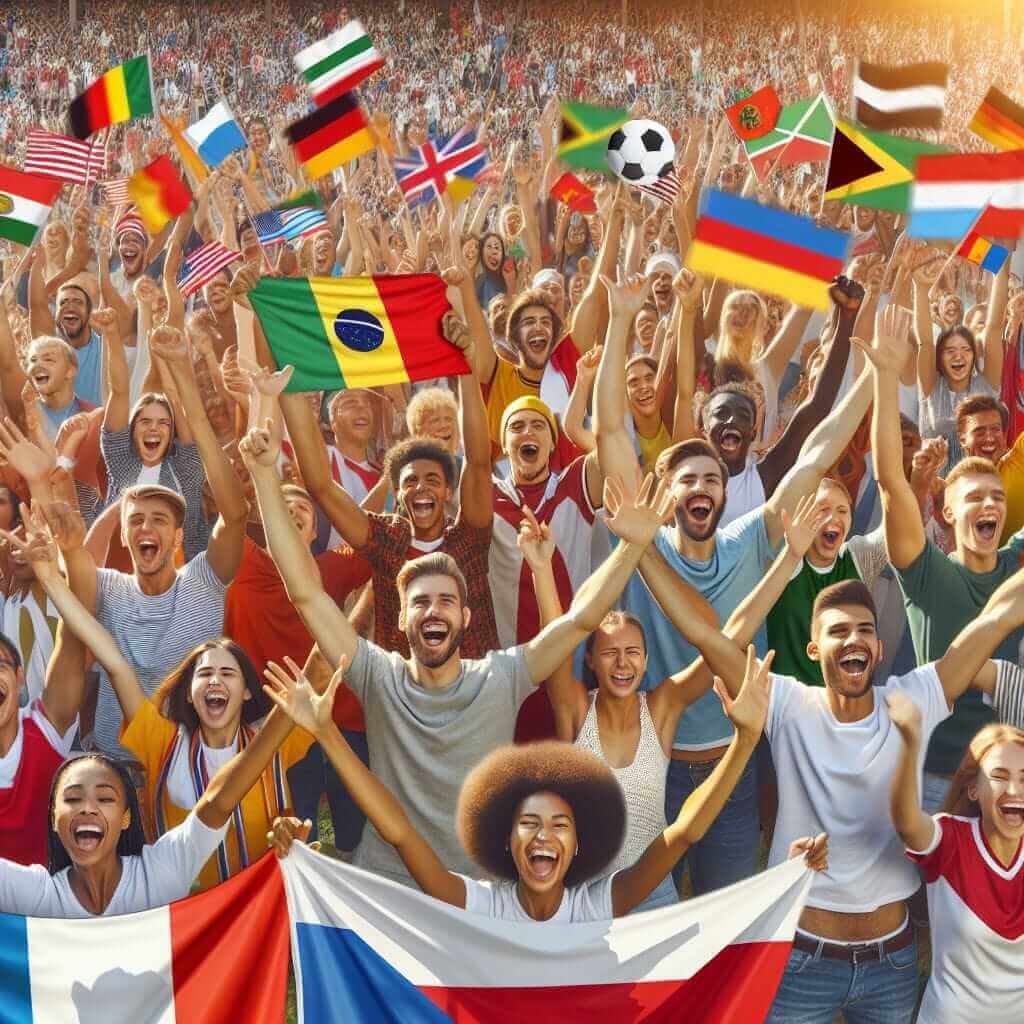The topic “The Influence of Sports on National Identity” frequently appears in IELTS Writing Task 2 exams, exploring how sporting activities and events can shape the identity of a nation. In this article, we will create a sample essay based on this topic, analyze it, and provide useful tips and vocabulary for IELTS candidates. This will help those aiming to achieve a Band 8 in the IELTS writing section.
Possible Essay Prompts
- Essay Prompt 1: Some people believe that international sporting events play a crucial role in fostering national identity. To what extent do you agree or disagree with this statement?
- Essay Prompt 2: Discuss the influence of sports on the national identity of your country. Provide examples to support your opinion.
- Essay Prompt 3: Is the impact of sports on national identity more significant than other cultural activities such as art or music? Discuss your view.
Choosing an Essay Prompt
For this exercise, we will choose the first prompt as it provides a balanced framework to present arguments and counterarguments.
Analyzing the Essay Prompt
Prompt: Some people believe that international sporting events play a crucial role in fostering national identity. To what extent do you agree or disagree with this statement?
Key Points to Consider:
- International Sporting Events: Olympics, World Cup, etc.
- National Identity: Sense of belonging, pride, unity among citizens.
- Argument (For/Against): Provide reasons for agreeing or disagreeing.
Sample Essay
Essay:
International sporting events such as the Olympics or the FIFA World Cup are often seen as platforms that can significantly enhance national identity. While some individuals argue that these events contribute immensely to fostering a sense of national pride and unity, others believe their impact may be overstated. In this essay, I will discuss both viewpoints, although I strongly support the former perspective.
To begin with, international sporting competitions provide a unique opportunity for citizens to rally behind their national teams, creating a profound sense of collective identity. An example of this is the Olympic Games, where athletes represent their countries, and victories are celebrated by entire nations. Such events not only highlight the nation’s sports prowess but also stimulate patriotism and pride among the populace. The sheer emotion during these events, the national anthems, the flags waving in the stands—all these foster a deep sense of belonging.
Moreover, international sporting events have the potential to unite citizens across various social divides. When a national team performs well, it can bring together people from different ethnic, social, and economic backgrounds. This sense of unity is particularly important for countries with diverse populations. For instance, during the FIFA World Cup, citizens regardless of their background, often exhibit solidarity and camaraderie, contributing positively to national cohesion.

However, it is essential to acknowledge the opposing view that the impact of sports on national identity can be transient. Critics argue that the euphoria surrounding sporting victories is often short-lived. Once the event is over, the daily lives of individuals, marred by socio-economic and political issues, resume, and the unity fostered by sports dissipates. Additionally, some contend that excessive emphasis on sports might divert attention from other crucial aspects of national identity formation, such as cultural heritage and education.
Nonetheless, despite these criticisms, the ability of international sporting events to create lasting memories and moments of national pride should not be underestimated. These events can ignite patriotism and provide a sense of continuity and identity that transcends temporal limitations.
In conclusion, while there are valid arguments on both sides, I firmly believe that international sporting events play an indispensable role in fostering national identity. They offer unparalleled moments of unity and pride, which are essential components of a cohesive national identity.
Word Count: 370 words
Tips for Writing
- Introduction: Clearly outline the topic and state your position.
- Body Paragraphs: Use clear topic sentences. Provide examples and evidence to support your points. Address counterarguments.
- Conclusion: Summarize your points and restate your stance.
Useful Vocabulary
- Patriotism (n) /ˈpeɪtriətɪzəm/ – Love for or devotion to one’s country.
- Cohesion (n) /kəʊˈhiːʒən/ – The action or fact of forming a united whole.
- Transient (adj) /ˈtrænziənt/ – Lasting only for a short time.
- Euphoria (n) /juːˈfɔːriə/ – A feeling or state of intense excitement and happiness.
- Solidarity (n) /ˌsɒlɪˈdærɪti/ – Unity or agreement of feeling or action.
- Unparalleled (adj) /ʌnˈpærəleld/ – Having no equal; exceptional.
- Camperaderie (n) /ˌkæməˈrɑːdəri/ – Mutual trust and friendship among people who spend a lot of time together.
- Prowess (n) /ˈpraʊəs/ – Skill or expertise in a particular activity.
- Temporal (adj) /ˈtɛmpərəl/ – Relating to worldly as opposed to spiritual affairs; secular.
- Heritage (n) /ˈhɛrɪtɪdʒ/ – Property that is or may be inherited; an inheritance.
Conclusion
In summary, the influence of sports on national identity can be profound, particularly during international events. These opportunities for unity and pride underscore the importance of sports in shaping a nation’s collective identity. Candidates are encouraged to practice writing on this topic as it embodies recurring themes in the IELTS Writing Task 2 exam.
Other relevant topics candidates might encounter include the role of arts or the impact of cultural activities on national identity.